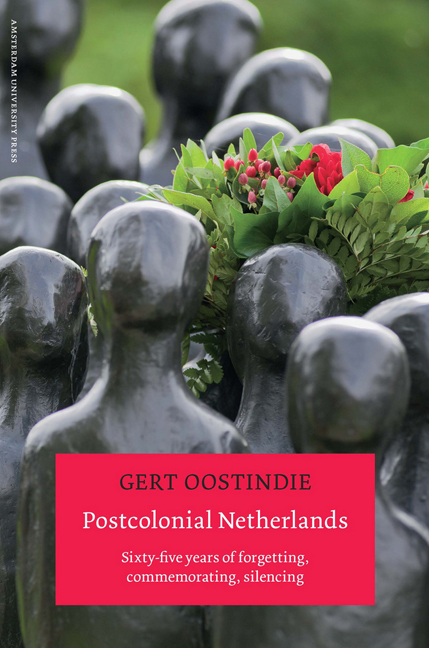Book contents
- Frontmatter
- Contents
- Introduction
- 1 Decolonization, Migration and the Postcolonial Bonus
- 2 Citizenship: Rights, Participation, Identification
- 3 The Struggle for Recognition: war and the Silent Migration
- 4 The Individualization of Identity
- 5 Imagining Colonialism
- 6 Transnationalism: a Turning Tide?
- 7 An International Perspective
- 8 ‘Postcolonial’ (in the) Netherlands
- Notes
- Bibliography
- Acknowledgements
- Index of People, Organizations and Memorial Sites
7 - An International Perspective
Published online by Cambridge University Press: 20 January 2021
- Frontmatter
- Contents
- Introduction
- 1 Decolonization, Migration and the Postcolonial Bonus
- 2 Citizenship: Rights, Participation, Identification
- 3 The Struggle for Recognition: war and the Silent Migration
- 4 The Individualization of Identity
- 5 Imagining Colonialism
- 6 Transnationalism: a Turning Tide?
- 7 An International Perspective
- 8 ‘Postcolonial’ (in the) Netherlands
- Notes
- Bibliography
- Acknowledgements
- Index of People, Organizations and Memorial Sites
Summary
The Dutch experience of postcolonial migrations was not unique. A number of other countries found themselves confronting migration flows from their former colonies at the end of the Second World War. In Europe this particularly applied to the United Kingdom, France and, somewhat later, Portugal. Mass migration unexpectedly brought these countries – and the Netherlands – face to face with their colonial histories, with the issue of integration, and the position of colonialism and postcolonial migration in the nation's imagination. There was more room for the latter in the British and Dutch model of moderate multiculturalism than there was in France and Portugal.
Postcolonial migrations were part of a far broader migration process which dramatically changed the face of post-war Europe. It also brought Islam to Western Europe on an hitherto unprecedented scale. In France, a large proportion of the postcolonial migrants were Muslim, which was not the case in Portugal or the Netherlands; the United Kingdom occupied the middle ground in this respect. This was to give rise to remarkable differences in the debates about integration and postcolonial nationhood.
A comparison between the Dutch experience and the experiences of the United Kingdom, France, and Portugal lies at the heart of this chapter. A number of other countries are also discussed, particularly former European colonial powers which were not confronted with postcolonial migrations. The question is whether these countries, unhampered by a postcolonial lobby, developed different views on colonialism.
The phenomenon of postcolonial migration to the former metropole is not limited to the old Europe. The United States, as well as Japan and Russia, received millions of post-war repatriates who were mainly migrants from their former colonies. In the case of the United States there are many parallels with Europe, both in issues surrounding integration and in debates about colonialism and postcolonial relations. It seems typical of a complete ly different approach to history that such debates were virtually absent in Japan and Russia.
MI GRATI ONS IN POST-WAR EUROPE
Viewed from the perspective of 1945, the post-war changes Europe was to undergo were almost inconceivable. The war had cost the lives of millions, among whom six million murdered Jews. The devastation was immense in other respects as well. Europe was destitute and disillusioned.
- Type
- Chapter
- Information
- Postcolonial NetherlandsSixty-Five Years of Forgetting, Commemorating, Silencing, pp. 188 - 214Publisher: Amsterdam University PressPrint publication year: 2012



